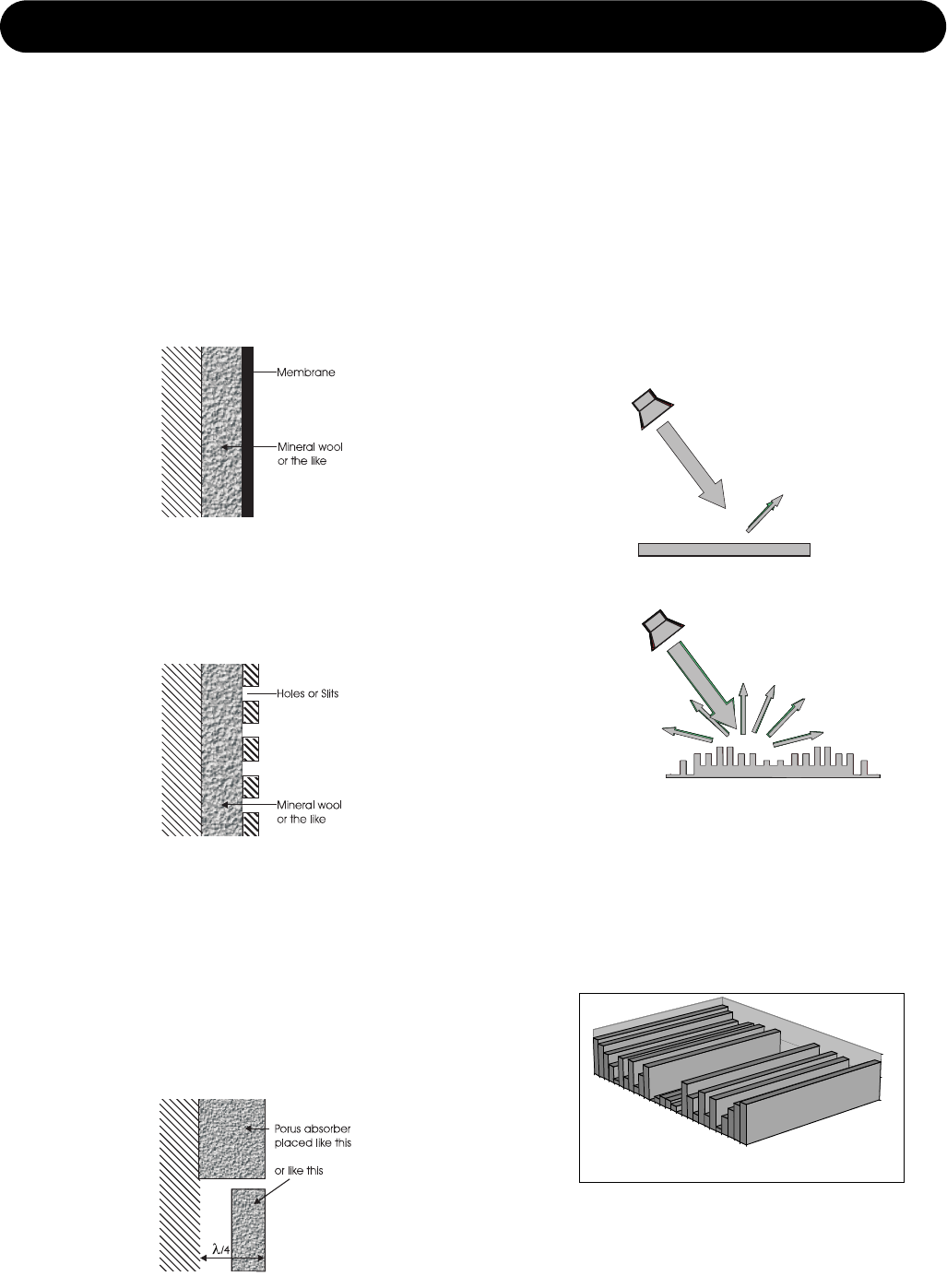
32
ACOUSTICS - BACKGROUND INFO
Diffusers
A diffuser provides diffuse reflection of the sound
radiated against it. It can be a very useful solution
in cases where reflections are disturbing the sound
image and it is not advisory to ad further
absorption. So in order to reduce flutter echoes,
comb filtering etc., special elements can be placed
on the "disturbing" surface. These elements must
have dimensions comparable to the frequencies at
which diffusion is wanted.
Absorbtion or diffusion ?
A special technique developed by Manfred
Schroeder is very capable in making a smooth and
controlled diffusion. These diffusers normally
referred to as "Schroeder Diffusers" can be found
as prefab modules.
Cross section of one example of the
Schroeder Panel.
Absorbers
All materials in the room act acoustically even if they are
not so-called acoustical materials. Basically we have three
kinds of absorbers.
Membrane absorbers
This kind of absorber includes wooden floors, windows,
doors, etc. This absorber provides absorption in the low
end of the frequency range. The efficiency is normally not
very high, but under normal conditions large areas are
included in the basic room construction. Special designed
membrane absorbers can be very effective.
Resonance absorbers
Resonance absorbers include slit panels, perforated plate,
Helmholtz resonators etc. These absorbers are normally
used in the frequency midrange. The absorption is medium
to high.
Porous absorbers
These absorbers include mineral wool, carpets, curtains,
and so on. They can be very effective, but the thickness of
the material has to be taken into account. Thin layers will
only absorb the highest frequencies. (Think of a rehearsal
room in the concrete basement where the only damping is
a carpet on the floor: Not good at low frequencies!)
To absorb a given frequency (and all frequencies above)
the thickness of the absorber must be the quarter of the
wavelength of that frequency. Or: the front of the material
must be placed at a distance of one quarter of the
wavelength.
1
4
7
10
13
16
19
22
25
28
0,0
10,0
20,0


















